On April 8, 2021, Deputy Director of the Center for Economic Research and Reforms (CERR) Dr.Umid Abidkhadjayev took part in the International Discussion Club on the topic "Central Asia: from regional interaction to joint sustainable growth."
According to the Deputy Director of CERR, 2/3 of world production occurs within the framework of global and regional value chains. In this regard, Uzbekistan should pay special attention to the establishment and strengthening of economic ties with the countries of Central Asia (CA), including the creation of joint ventures for export to third countries.
Export is an important indicator in foreign trade and shows the importance of export markets for Uzbekistan. In 2020, the share of CA countries in total exports of Uzbekistan amounted to 14.5%. At the same time, the largest volume of exports go to Kazakhstan and Kyrgyzstan 6.0% and 5.0% respectively among CA countries.
Umid Abidkhadjayev noted that during the period of 2017-2019 trade turnover of Uzbekistan with the Central Asian countries almost doubled from $ 2.7 billion up to $ 5.2 billion.
In his speech, the Deputy Director of CERR presented a preliminary analysis of the comparative advantages in the economy and the growth prospects for the export potential of Uzbekistan.
In particular, the effects of the regional trade agreements (RTAs) on the flows of exports and imports using the Gravity Model of foreign trade showed that, all else equal, participation in the RTA can double the volume of bilateral export and import of Uzbekistan.
The obtained coefficients of elasticity allow us to make a number of important conclusions.
Trade volume effects: the estimated coefficients suggests that, holding other things constant, the formation of regional trade agreements (RTAs) leads to an average increase of about 140.4 % in export of Uzbekistan to its RTA members, which is close to existing estimates from the literature (Baier and Bergstrand, 2007; Anderson and Yotov, 2016). For example, in Baier and Bergstrand (2007) paper it is documented that, on average, free trade agreement approximately doubles two members’ bilateral trade after 10 years.
Tariff equivalent effects: imposing tariffs from importing countries to export from Uzbekistan negatively affect Uzbekistan’s export. Holding other things constant, the average tariff-equivalent fall in export is 16%.
Uzbekistan's participation in RTAs increase more than double its both export and import. Moreover, exports may increase to a greater extent.
*The "Participation in the RTS" dummy-variable took into account all trade agreements of Uzbekistan signed during the period 1992-2018 both bilaterally and multilaterally. The obtained coefficients for the variable "participation in the RTS" make it possible to judge that, other things being equal, the future participation of Uzbekistan in the RTS both at the regional level and at the global level can increase Uzbekistan's exports by at least 140%.
It is expected that the expansion of mutual access by the Central Asian countries to domestic markets can largely contribute to solving the tasks of exporting of finished products. Moreover, countries are considered as partners in mutual trade with most non-primary goods.
In particular, increasing the export opportunities of commodity producers can contribute to the creation of regional value chains in the CA region, including industrial and agricultural clusters, which can have a compensatory effect in reducing transaction costs.
At the same time, as the Deputy Director of CERR emphasized, it is necessary to pay attention to the digital economy and the creation of digital trading platforms for Central Asia.
The expert noted that investing in infrastructure projects in CA countries is an important condition for development in the medium term.
- According to the ADB report "Meeting Asia's Infrastructure Needs", Asia will need about $ 22 trillion dollars of infrastructure investments to maintain the current rates of economic growth until 2030. Such investments are good because they have a spillover effect, their positive indirect effect goes beyond state borders and ultimately, it is a game with a non-zero sum, U. Abidkhadzhaev emphasized.
The event was attended by the First Deputy Chairman of the Senate Mr.Sodiq Safaev, Director of the Institute for Strategic and Interregional Studies under the President of Uzbekistan Mr.Eldor Aripov, Director of Development Strategy Mr. Eldor Tulyakov, Director of the Center for Eurasian Studies, under Russian Ministry of Foreign Affairs IMI Moscow State International Relations, Mr. Ivan Safranchuk, Director of the Central Asia and Caucasus Institute at Johns Hopkins University Mr.Frederick Starr, Deputy Director of the Kazakhstan Institute for Strategic Studies under the President of Kazakhstan Mr. Sanat Kushkumbayev, and a well-known German international journalist Mr.Alexander Rahr.
Public Relations Service CERR

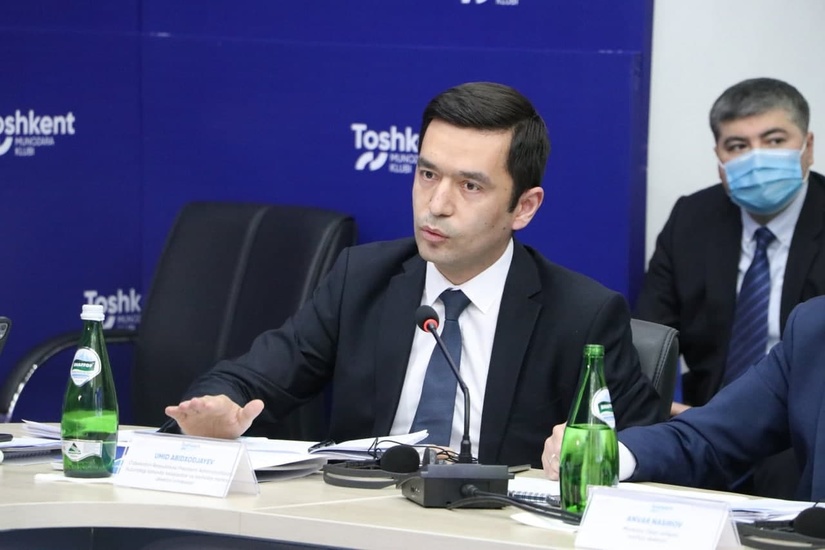

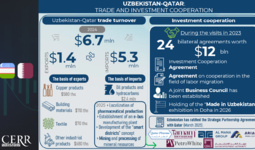
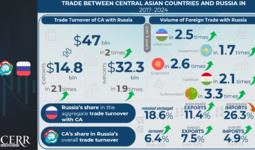
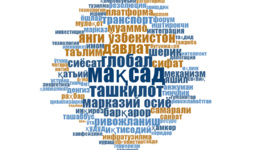
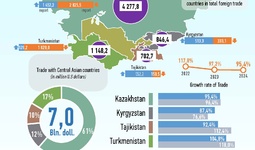
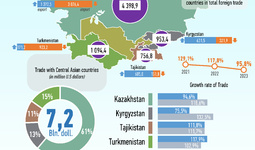













leave a comment